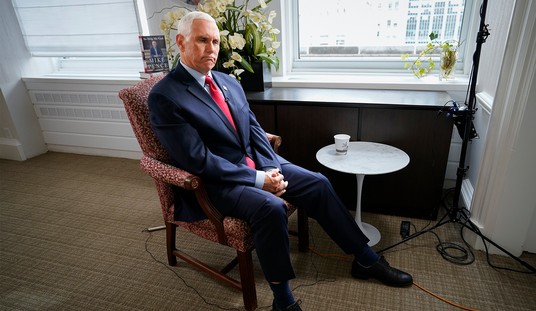With despair gripping New York Democrats over ethical scandals claiming Governor David Patterson, Rep. Charlie Rangel (D-NY), and Rep. Eric Massa (D-NY), New York’s Attorney General Andrew Cuomo cuts a heroic figure as the presumptive heir to the governorship.
But catching up with Cuomo is his relationship with the mortgage meltdown that nearly destroyed the American economy. Appointed by Bill Clinton as secretary of the U.S. Department for Housing and Urban Development (HUD), Andrew Cuomo has been called “the father of the subprime crisis” for the policies he orchestrated.
It was Cuomo’s directives that mandated HUD to vastly increase the amount of risky home loans bought by quasi-governmental housing giants Fannie Mae and Freddie Mac. Now, Cuomo may be haunted by his tenure as HUD secretary, where he planted the seeds for the nation’s housing collapse.
Though America’s financial fortunes suffered after Cuomo’s time at HUD, his own personal fortune soared. The bulk of this financial “windfall” came courtesy of Andrew Farkas, the billionaire real estate developer who helped Cuomo amass his wealth as a business partner and campaign fundraiser. Farkas — now Cuomo’s financial chairman as he circles the governorship — has personally given Cuomo at least $1.8 million in cash.
As New Yorkers are beginning to discover, Andrew Cuomo personifies the long reach of many at the top of the Democratic Party who built their fortunes on the mortgage bubble and the sub-prime collapse, but have yet to be tarred and feathered as architects of the nation’s worst housing crisis.
Cuomo’s heavy reliance on funds raised from big players in New York real estate, analyzed in detail by the New York Times this January, “hasn’t drawn much scrutiny yet, but it will,” said Blair Horner, legislative director at NYPIRG, the New York Public Interest Research Group, in an interview with Pajamas Media. “If and when he announces as a candidate for governor, because it’s obviously an issue that the public deserves to have explored.”
Notably, another recipient of largess while Cuomo was HUD secretary is current White House Chief of Staff Rahm Emanuel. Clinton appointed Emanuel to the board of Freddie Mac while Cuomo headed HUD. Both Cuomo and Emanuel turned their privileged positions atop the nation’s mortgage finance system into opportunities for quickly amassing personal wealth, which they then leveraged into greater political power.
Thanks to Farkas, Cuomo’s current campaign war chest for governor is $18 million — big enough to eliminate primary competition before it starts. With a past already raising uncomfortable questions for Cuomo, Farkas is deeply embedded in controversial Middle East financial dealings, having created a “Fannie and Freddie for Dubai” in the United Arab Emirates. A quick wheeler-dealer, Farkas bailed out before the Emirate’s colossal credit crisis, and made a string of similarly well-timed deals with Dubai World in 2009, with whom he flipped marquee Manhattan properties. Just last week, Farkas raised eyebrows with his acquisition of Centerline Holding Company, which services over $110 billion in commercial mortgages.
“All of this stuff is fair game, so certainly Farkas’ relationship is going to be an issue,” Horner said. “If Cuomo runs for governor, I assume his relationship with Farkas is one of the obvious things that Lazio or whoever the Republican candidate is would bring up.” Horner pointed out that the issue is likely to arise “even if Cuomo has a Democratic primary.” “The public should hear what his response is,” he said.
In 2007, Horner was handpicked by Cuomo to create Project Daylight, Cuomo’s centerpiece online transparency initiative. Horner returned to NYPIRG as legislative director in 2008. Like “any other interest,” he said, real estate interests “give money under the theory that they get something in return. Whether or not they do, of course, is really the question. But they believe that it gets them at least access, and the question is, do they get that or even more? It’s a legitimate question, and it’s a legitimate question that all candidates have to face when you get big bucks from powerful interest groups.”
Initially, Farkas and Cuomo got off to a bad personal start. Farkas was the notorious target of a high-profile slumlord lawsuit brought by Cuomo when he was at HUD. But HUD quietly settled the case out of court, permitting Farkas’s company, Insignia, to immediately divest its residential real estate for almost $1 billion.
And, disturbingly — as Wayne Barrett reported in 2006 for The Village Voice — over $800,000 in campaign contributions from Insignia and Farkas flowed into Cuomo’s coffers, beginning mere months after his departure from HUD in 2001.
Then, Farkas hired Cuomo, paying him more than $1 million from 2004 to 2006.
Barrett told the New York Times in September of 2006 that Cuomo and Farkas both tried to suppress or delay his story detailing their relationship. But Barrett followed up the report in 2008 with a cover story detailing how Cuomo, as HUD chief, ordered huge new purchases of risky loans by Fannie and Freddie, which helped trigger the mortgage meltdown.
Richard Bové, financial analyst at Rochdale Securities, agrees. In a March 3 interview with CNBC’s Maria Bartiromo, Bové charged that Cuomo’s irresponsible stewardship at HUD was a key cause of Fannie and Freddie’s bankruptcy and still-deepening bailout.
Speaking by telephone, Bové echoed Barrett’s claim that Cuomo was “the father of the subprime crisis,” an appointee out of his depth who imposed negligent and irresponsible risks on Fannie and Freddie in an apparent crusade to get the “underprivileged” into homes. Cuomo “was not as concerned about the audits or the types of loans that Fannie and Freddie were making,” Bové said, “as long as there was an expansion of mortgage services to that segment of the population.”
Bové suggests that as governor, Cuomo would show the same disregard for the interests of New York taxpayers as he did for the subprime homeowners across America who lost their homes in large part because of Cuomo’s reckless policies. “The financial system will be sharply lower, there will be fewer jobs, people will make less money, and the tax base of New York will be significantly less.”
Bové chalked up Cuomo’s disastrous HUD performance to a “total lack of knowledge of economics, finance, and …what companies like Fannie Mae and Freddie Mac could endure.” But he underscored that every board member overseeing Fannie and Freddie shares responsibility for the mortgage crisis. Their responsibility, he said, was to protect, at the most basic level, the health and stability of the corporation. “It is clear that the boards of directors of Fannie Mae and Freddie Mac did not do that, because those companies are bankrupt.”
Worse, said Bové, “the American taxpayer is on the hook for more money in these two companies than anything else the government may be doing to assist AIG or General Motors.” As estimated by the Congressional Budget Office, Fannie and Freddie cost the American taxpayer $291 billion in 2009, with $389 billion to come over the next ten years. According to the the Washington Post, Americans face a new round of millions of foreclosures, with recovery taking as many as three years.
Among the board members present at the creation of the mortgage mess was current White House Chief of Staff Rahm Emanuel, whose tenure at Freddie Mac overlapped with Cuomo’s at HUD. As the Chicago Tribune reported last year, Emanuel’s 14-month stay earned him at least $320,000. During that time, Freddie Mac spent corporate dollars on campaign fundraisers, including Emanuel’s own Chicago run for Congress in 2002. And, as the searing report issued by Office of Federal Housing Enterprise Oversight director Armando Falcon showed, Freddie’s board permitted billions in accounting overstatements.
Cuomo and Emanuel both parlayed Clinton’s patronage into lucrative personal advancement. Now, they share something else in common: an interest in getting New York Governor David Paterson out of office as quickly as possible. In the wake of his attempted coverup of an aide’s brutal abuse, pressure is building for Paterson to resign outright. Cuomo is pursuing a controversial internal probe of Paterson from the Attorney General’s office. And as Emanuel makes news for bullying Rep. Massa out of office, he keeps the heat on Paterson with the approval of President Obama.
But as scandals claim the careers of Democratic Representatives Charles Rangel and Eric Massa, Cuomo’s inside game has left him poorly positioned for an ascent to power as the savior of the New York Democrats. Unable to launch his candidacy until his probe of Paterson was complete, Cuomo has handed it all off to a freshly appointed independent counsel. As Emanuel knows well enough, for the Democrats, time is running out to reverse their soured electoral fortunes.









Join the conversation as a VIP Member